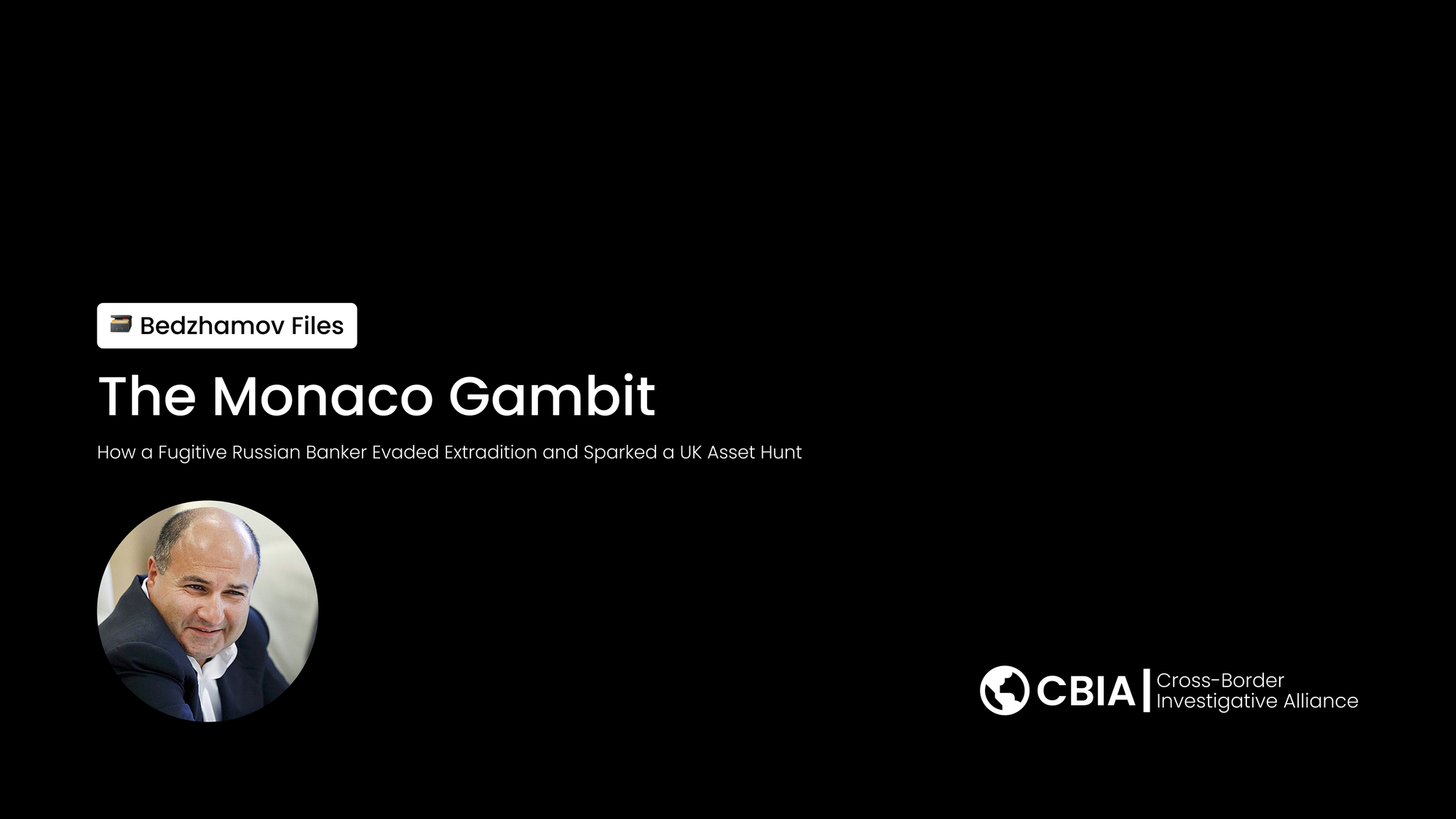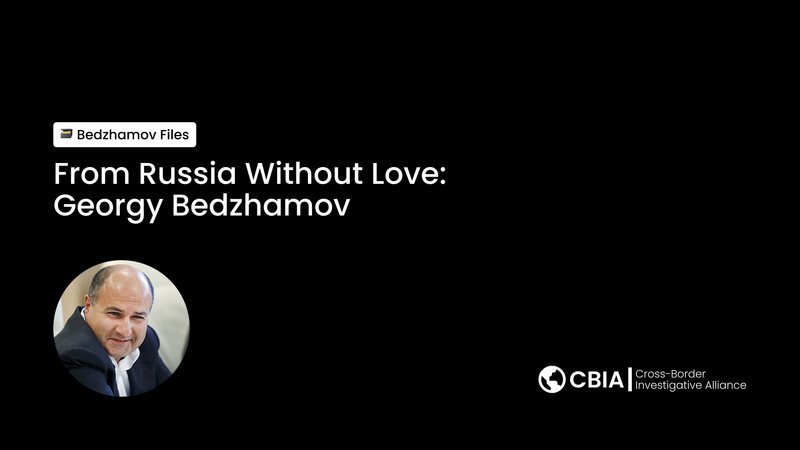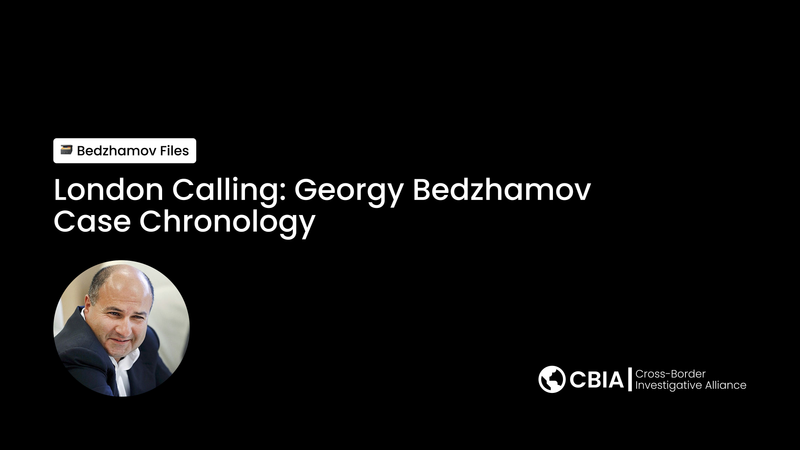The Monaco Gambit: How a Fugitive Russian Banker Evaded Extradition and Sparked a UK Asset Hunt

When Georgy Ivanovich Bedzhamov stepped off a plane in Monaco in April 2016, Russian authorities believed they had finally cornered the fugitive banker linked to one of Russia's largest embezzlement scandals. Instead, what followed was a masterclass in cross-border financial evasion that has stretched from the French Riviera to the courts of London, exposing a sophisticated network designed to hide billions in stolen assets.
Bedzhamov, co-owner of the collapsed Russian bank Vneshprombank, stands accused of orchestrating a $3 billion embezzlement scheme that devastated depositors including government ministries, state-owned corporations, and even the Russian Orthodox Church. But his arrest in Monaco on a Russian extradition request in April 2016 was just the beginning of an international legal chess game that continues today.
The Monaco Gambit
Despite initial detention, Bedzhamov successfully fought extradition in Monaco's courts. On July 12, 2016, the Court of Appeal of Monaco refused to extradite him to Russia [2]. The decision was a significant blow to Russian authorities, who had hoped to bring the banker back to face charges alongside his sister and co-conspirator, Larisa Markus, who had already been arrested in December 2015.
Interpol's refusal to place Bedzhamov on its wanted list, citing that "the prosecution in Russia does not correspond with its goals and objectives," further complicated Russian efforts to pursue the fugitive banker [2]. This left Russian authorities to pursue alternative legal channels to recover the stolen assets.
The London Asset Hunt
Following his successful resistance to extradition, Bedzhamov fled to London, where he applied for asylum and established residence. However, his presence in the UK triggered a new battleground in the courts. A British High Court imposed a worldwide freezing order on his assets, effectively locking down his financial holdings while legal proceedings continue [1].
The scope of the theft became clearer through court proceedings. In January 2016, Russia's Central Bank revoked Vneshprombank's licence after discovering a shortfall of 187.4 billion rubles ($2.3 billion) in the bank's balance sheet. By 2021, the obligations had risen to 218 billion rubles (around $3 billion) [1].
A Web of Financial Deception
New revelations from the Pandora Papers have exposed the sophisticated methods Bedzhamov and his sister used to hide and move stolen funds. The leaked documents reveal how they employed Nicosia-based law firm Demetrios A. Demetriades LLC (Dadlaw) to create a complex web of shell companies and trusts designed to obscure asset ownership [1].
The scheme involved backdating transactions to protect assets from seizure. Most notably, Markus transferred ownership of Stanferme Asset Management Inc, a British Virgin Islands company, to her brother just days after her arrest. Bedzhamov waited 13 months to acknowledge the transfer, then instructed Dadlaw to backdate the transaction to November 2, 2015 – more than a month before his sister's detention [1].
"Often, backdated transactions are needed to confirm the legal ownership of a company or asset on a specific date," explained Ilya Shumanov, director of Transparency International in Russia. "An attempt to confirm the transfer of the company's shares retroactively looks like a pre-agreed action by the parties in order not to lose control over the assets" [1].
Complex Loan Structures
The Pandora Papers also revealed how Bedzhamov moved more than $50 million through a convoluted system of loans between 2012 and 2013 – at the height of the Vneshprombank embezzlement. These transactions involved Cyprus-based company Felarco Management Limited, which acted as a conduit, receiving funds from obscure UK entities and quickly transferring identical amounts to Bedzhamov [1].
These loan agreements contained numerous red flags, including missing repayment schedules, unclear terms, and even misspellings of Bedzhamov's name in documents. Anti-fraud experts suggest such tactics were designed to avoid detection by bank compliance systems.
"The use of different spelling versions of the client's name could be used to mislead the compliance division of a bank ... in an attempt to avoid being held accountable by the financial regulator," Shumanov noted [1].
The Human Cost
While Bedzhamov lives in London on a court-approved monthly allowance of £120,000 ($160,000) to cover his "subsistence, rent, personal security, and other expenses," the victims of the Vneshprombank collapse continue to suffer [1]. The bank's depositors, including ordinary Russians who trusted their savings to the institution, lost billions when the bank's licence was revoked.
Markus, meanwhile, pleaded guilty to embezzling $1.8 billion from the bank in May 2017 and was sentenced to nine years in prison, later reduced by six months [1]. Her cooperation with authorities has not led to the recovery of the stolen funds, which remain hidden in the complex web of offshore entities.
Ongoing Legal Battles
The case continues to unfold in British courts, where Russian authorities are pursuing asset recovery through civil proceedings. In September 2021, a British High Court judge indefinitely postponed the start date for Vneshprombank's fraud case against Bedzhamov, citing uncertainty over the Russian charges and questions about whether his assets could be used to pay creditors [1].
Russian asset recovery efforts have taken creative approaches, including mobile billboard campaigns in London's upscale Knightsbridge district, asking residents for information about assets belonging to Bedzhamov and his sister [1].
Yury Isaev, director general of Russia's Deposit Insurance Agency, confirmed in June 2021 that the agency continues to search for hidden assets to cover Vneshprombank's massive obligations [1].
A Pattern of Offshore Abuse
The Bedzhamov case illustrates how international financial systems can be exploited by sophisticated criminals to evade justice across borders. The involvement of law firms in multiple jurisdictions, the use of shell companies in secretive tax havens, and the manipulation of legal procedures across different countries created a nearly impenetrable barrier to asset recovery.
"When you start moving money into companies under different people's names – often companies owned not by the person but by their associates – it makes it seem like money is moving and working," explained Lakshmi Kumar, Policy Director at Global Financial Integrity. "In reality it's moving but not working: It's just being funnelled" [1].
The case remains a stark reminder of the challenges facing international law enforcement when pursuing sophisticated financial crimes that span multiple jurisdictions. As legal proceedings continue in London, billions in stolen assets remain beyond the reach of those who lost their life savings to Vneshprombank's collapse.
Sources:
[1] Organized Crime and Corruption Reporting Project (OCCRP): "Fugitive Russian Banker Used Cypriot Law Firm to Hide Assets, Move Money" (Retrieved May 23, 2024)
[2] Monaco Life: "Fugitive banker still sought by Russia" (Retrieved May 23, 2024)



